While the answer to this question is very personal, I can tell you about my experiences. I have always been a planner – I even had a reputation among my friends as the one who disappeared over New Year for my own “reset retreat” with just me and the dogs. I also had a reputation for always achieving the goals I set up for myself. I bought my first home at 23. I completed two master’s degrees, a graduate certificate, and a doctorate while working full time. I reached the executive ranks of my organization at a relatively young age. However, that doesn’t mean I didn’t have my own struggles.
I’ve had my moments where I looked back on my experience, blind to all of my accomplishments that everyone else could so clearly see.
I’ve desperately wanted to move from dabbling in a little bit of everything to getting clarity and going all in on a strategy that will get me to my goals quickly.
I’ve been full of energy and excitement about a new idea but too overwhelmed to figure out the best way to start.
In all of these moments, the ONLY way I was able to get myself unstuck is to talk to someone whose sole purpose is to help me move forward.
Even realizing that asking for this type of help was possible (and not indicative of weakness and failure) was a process. I spent so many years going off to the beach alone – just me and my dogs – to think through and plan. I updated my 5-year plan every year and clarified what I wanted to accomplish over the next 12 months.
Only in the past several years did I realize that partnerships, accountability buddies, mentors, and coaches were indispensable. It was not about me admitting failure or some inadequacy. Having a core group of trusted advisors (some I paid and some I didn’t) could accelerate my path to my goals beyond anything I could do myself. It was like flooring the gas peddle and getting the map to all the shortcuts!
Why are others hiring coaches?
Sometimes when deciding whether you need a coach or not, it is nice to see why others are looking for coaches. Out of 64 people looking for coaching services over the past 7 days, there was the following breakdown:
- 27% were looking for some kind of career pathing support
- “I want help navigating a career path”
- “I want to find a career I actually like and have a plan to achieve it”
- 22% were looking to get goal clarity
- “I want to find myself”
- “I want to look forward to each day and love what I do”
- “I want to get unstuck and transform my life”
- 14% were specifically looking for business coaching
- “I want to grow my business from a one-person service”
- “I want to grow and organize my business”
- 12% were looking to build more supportive routines
- “I want to reverse any negative or unhealthy patterns and create a plan of action for success”
- “I want more work-life balance”
- 9% needed help with accountability
- “I want to be more accountable towards my goals”
- “I want to explore a success roadmap for my next 12 months”
- 6% were wanting help with a career transition
- “I want to develop and execute a plan to find a new position”
- “I want to transition into a more creative profession”
- And 2% each were looking for help to change their perspective or develop new skills
- “I want to find more peace with what I’m currently working on”
- “I want to improve my presentation and public speaking skills”
It is important to note that this is what they say they are looking for on their intake form. When I start the conversation, what they thought they wanted when they filled out the form and what they need to work through to achieve their goals are not exactly the same.
But, getting clarity and career issues are big topics I work with in my coaching.
How about you? Do you see yourself in these “I want” statements? Are there other “I want” statements that would benefit from having a neutral third party to listen, ask questions, and hold you accountable?
The coaching industry
I don’t think my experience and the “wants” of those above are an isolated instance… The U.S. estimated market value for personal coaching was $707M in 2011 and $1.02B in 2016. With an approximate 6.7% average yearly growth rate, the market should exceed $1.34B by 2022.
This growth means many new “coaches” are entering the market. It is estimated by the International Coach Federation that there were approximately 71,000 coaches in 2019, up 33% from the 2015 estimate. About 92% of these are active. One would think that the market is saturated, but demand is still growing.
The biggest challenge is that the barrier to entry for coaching is incredibly low – anyone can hang a shingle and call themselves a coach. You’ll find coaches of varying caliber in every niche. As you are looking for a coach, make sure you do your due diligence to ensure the coach you hire will amplify your success.
What to consider when hiring a coach
The bottom line is that choosing a coach is a personal decision, and the connection you feel with your coach is more important than any specific certification or education. Most certifications are simply proof of payment to that organization, not proof of ethical standards, a level of proficiency, or a guarantee for results.
Getting to know you. Because it is such a personal decision, all reputable coaches should either offer a free initial session or a way to back out of whatever package you purchased if, when you do meet, you don’t click.
Online or in person. The internet means you can access coaches all over the country and the world. If you are in a small town or are very mobile yourself, you may want to look online to find the best coach and develop a relationship using Google Hangouts, phone, text, and email. If you want to be able to whiteboard out your ideas in person, you may want to limit your search to someone local.
Experience. While specific coaching certifications have varying degrees of meaning, it doesn’t mean you shouldn’t bother checking the experience of your coach. In addition to testimonials from other clients, you’ll also want to check that they have a level of lived experiences that will help you. For instance, if you want help to grow into a leadership position at work, you probably want someone who has helped others do the same or become a leader themselves, preferably both.
Style and tone. Style and tone are also important; you can find coaches to suit every need. If you are looking for someone who is centered on spirituality and your aura and uses crystals in their work, you can find someone who does that. If you are looking for a “just the facts” coach who is results-oriented and pragmatic, you can find that too. And, you can find everything in between.
Your specific needs. What other components are important for you when looking for a coach? If you’ve had an unsuccessful coach, you may have a “do not want” list. I know that when working with coaches, I need someone who will focus on what I need to improve on and only focus on my accomplishments when I forget to take the time to celebrate them or am being hard on myself. You never want to roll your eyes with your coach or feel like they aren’t serving your end goal. Make sure you get clear on what you do and don’t want, and go out and find the perfect match for you – with over 70,000 coaches out there, you’re bound to find the right one for you!
Working with me as a coach
I currently do not work with individuals as coaching clients. However, I coach executives in my consulting and change management work with their organization. If you would like change management advising and executive coaching as part of that support, check out our Change Management Advising page here or book a time with me directly to talk about your needs here.







